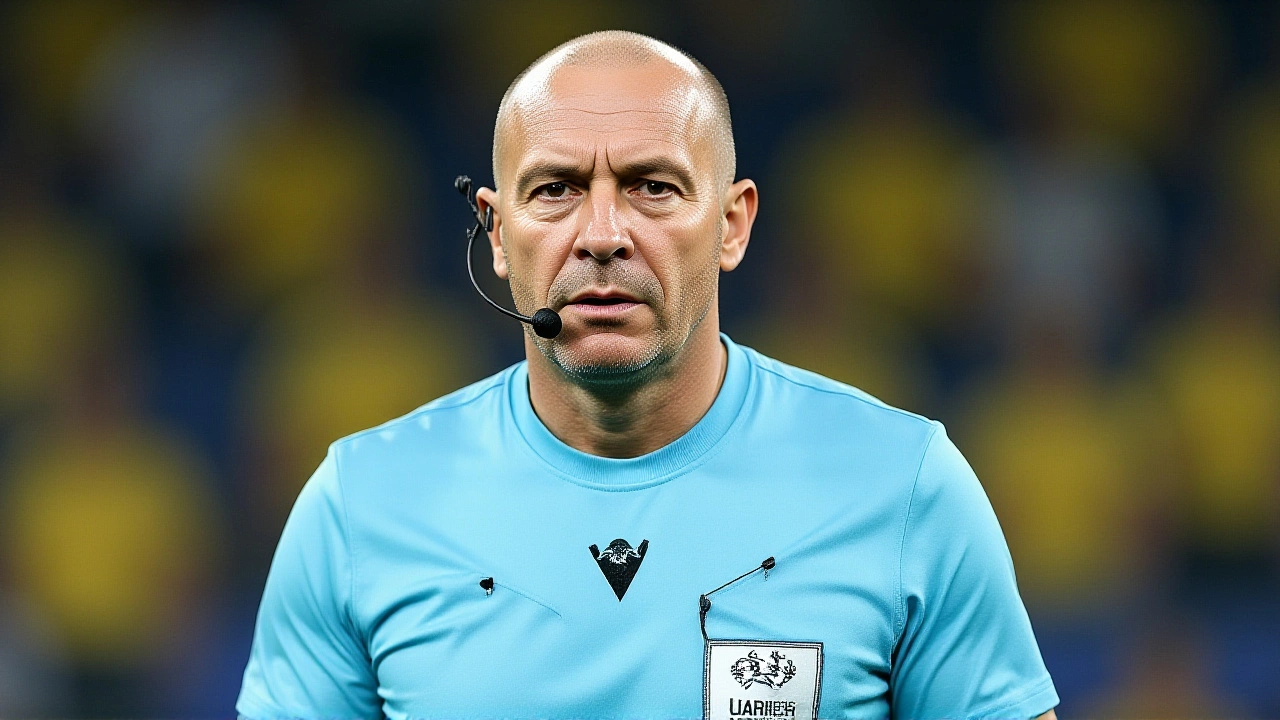
When UEFA dropped its Matchday 4 referee list for the 2025/26 Champions League league phase on November 4, 2025, it wasn’t just a routine announcement—it was a masterclass in transparency. The 2025/26 UEFA Champions League league phase is already reshaping European football, and now, the officiating team is pulling back the curtain on how decisions are made. From the high-stakes clash between Liverpool and Real Madrid to the fiery Paris Saint-Germain versus Bayern München fixture, the names behind the whistle matter more than ever. And for the first time, UEFA didn’t just name the referees—it explained exactly why three key calls were overturned.
Who’s Refereeing the Big Matches?
Matchday 4, kicking off November 4-5, 2025, features 18 matches across 12 countries, with officials from 12 different nations. The marquee clash at Anfield? István Kovács of Romania, a veteran of 17 Champions League games, will take charge of Liverpool versus Real Madrid. The game’s atmosphere will be amplified by the presence of Pierluigi Collina, the legendary Italian referee turned UEFA Referee Observer, watching every move from the stands.
Meanwhile, Maurizio Mariani of Italy, known for his calm demeanor under pressure, has been handed the Paris Saint-Germain versus Bayern München duel—a fixture that could define early-season momentum. And in one of the most anticipated matchups of the phase, Anthony Taylor of England, one of Europe’s most trusted referees, will oversee Club Brugge versus Barcelona at the Jan Breydel Stadium.
For the crunch match in Manchester, Szymon Marciniak of Poland—famous for his no-nonsense approach and handling of the 2022 World Cup final—will referee Manchester City versus Borussia Dortmund. It’s no coincidence that UEFA assigned its most experienced referees to the games with the highest stakes.
VAR Got It Wrong—Then Got It Right
Here’s the twist: UEFA didn’t just announce appointments. It published full technical breakdowns of three VAR interventions that changed the course of matches.
First, in Bodø/Glimt versus Monaco, referee Damian Sylwestrzak initially showed a yellow card to Bodø/Glimt’s No. 6 for a tackle. But the VAR team, led by Fedayi San of Switzerland, reviewed footage and upgraded it to a red. Why? The replay showed the player’s studs made direct, violent contact with the opponent’s right ankle—a clear danger to player safety. “It wasn’t just a bad challenge,” read the technical note. “It was reckless.”
Then came the Tottenham versus Copenhagen game. Referee Erik Lambrechts (Belgium) flagged a yellow for No. 22’s tackle on Copenhagen’s left ankle. VAR, this time under Marco Fritz (Germany), overturned it. Same foul. Same intent. Same red card. “Consistency is the new standard,” read the official statement.
And in the Atlético Madrid versus Union Saint-Gilloise match, referee Esper Eskås (Norway) allowed a goal after a buildup involving Atlético’s No. 10. VAR stepped in, revealing the player was clearly offside before the final pass. Goal disallowed. “The offside was marginal,” noted the report, “but the VAR system’s precision meant we couldn’t ignore it.”
Why This Transparency Matters
This level of detail is unprecedented. In past seasons, VAR decisions were summarized in vague bullet points. Now, UEFA is publishing exact timestamps, player numbers, and technical justifications. It’s a direct response to fan frustration—and a smart move to rebuild trust. Fans in Barcelona, Liverpool, and Munich have spent years arguing over calls. Now, they can see exactly why a decision was made.
It also signals a shift in referee accountability. When Pierluigi Collina is watching a match—not as a guest, but as an official observer—it sends a message. Every call is under scrutiny. Every misstep could cost a referee their next assignment.
The Bigger Picture: The 36-Team League Format
Remember, this isn’t the old group stage. Since 2024/25, the Champions League has adopted a 36-team league phase, where every team plays eight matches against randomly drawn opponents. No more predictable groupings. No more guaranteed “easy” fixtures. That means every referee appointment carries more weight—because every match could swing a team’s entire campaign.
Just look at last month’s results: PSV Eindhoven lost 2-1 to Napoli under referee Sylwestrzak, and that result still echoes in their qualification hopes. Newcastle United’s 1-0 win over Benfica, refereed by Danny Makkelie, was pivotal in their top-eight push.
Even the youth and domestic paths are being tightly managed. Matteo Marchetti (Italy) handled the UEFA Youth League match between Tottenham and Villarreal on September 11, 2025—a sign that talent pipelines are being monitored from the ground up.
What’s Next?
Matchday 5 arrives on November 25-26, 2025, and already rumors are swirling: Will Szymon Marciniak get another top fixture? Will Clément Turpin (France) be trusted with another high-tempo clash? And will UEFA release VAR breakdowns for every match, or just the controversial ones?
One thing’s certain: football fans are no longer content with just knowing who’s refereeing. They want to understand why. And UEFA, for once, is giving them exactly that.
Frequently Asked Questions
Why did UEFA start publishing detailed VAR explanations?
UEFA began publishing detailed VAR explanations in the 2025/26 season to rebuild fan trust after years of controversy over inconsistent decisions. By releasing exact timestamps, player numbers, and technical justifications, they’re reducing speculation and showing accountability. The move follows similar transparency efforts in the Bundesliga and Premier League, but UEFA’s rollout is the most comprehensive in European competition history.
Who is Szymon Marciniak, and why is he assigned to big matches?
Szymon Marciniak is a Polish referee with over 200 top-flight matches and global recognition after officiating the 2022 World Cup final. He’s known for his calm authority and ability to manage high-pressure games without losing control. UEFA consistently assigns him to high-stakes matches—like Manchester City vs. Dortmund—because his track record shows he rarely makes errors under pressure, and his decisions hold up under video review.
How does the new 36-team league format affect referee workload?
Under the new format, each referee may handle up to four matches per season, compared to just one or two in the old group stage. This increases their exposure and accountability. It also means referees must adapt to unfamiliar teams and styles quickly—no more studying a group’s tendencies over six matches. UEFA has responded by increasing referee training sessions and introducing real-time performance analytics for each official.
Which referee has the most Champions League experience in this round?
István Kovács of Romania leads the pack with 17 Champions League matches under his belt, including last season’s quarterfinal between Real Madrid and Bayern München. He’s overseen more top-tier European matches than any other active referee in this season’s pool. His appointment to Liverpool vs. Real Madrid isn’t random—it’s recognition of his consistency and composure in the biggest moments.
Were any referees penalized for incorrect decisions in Matchday 3?
Yes. UEFA’s Referee Committee quietly downgraded one assistant referee from Matchday 3 after a missed offside call in the Barcelona vs. Olympiacos match. Though the main referee, Urs Schnyder, wasn’t punished, the assistant’s error contributed to a goal being incorrectly allowed. This is the first time since 2023 that a match official received a formal performance review that affected future assignments.
How many VAR teams are there in the Champions League, and how are they assigned?
UEFA maintains a pool of 12 dedicated VAR teams, each composed of a lead VAR, an assistant VAR, and a replay operator. Teams are assigned based on language, time zone, and previous performance. For example, Fedayi San (Switzerland) and Marco Fritz (Germany) are often paired with matches involving German or French clubs because they’re fluent in both languages and understand the cultural context of play styles. This reduces miscommunication and speeds up reviews.
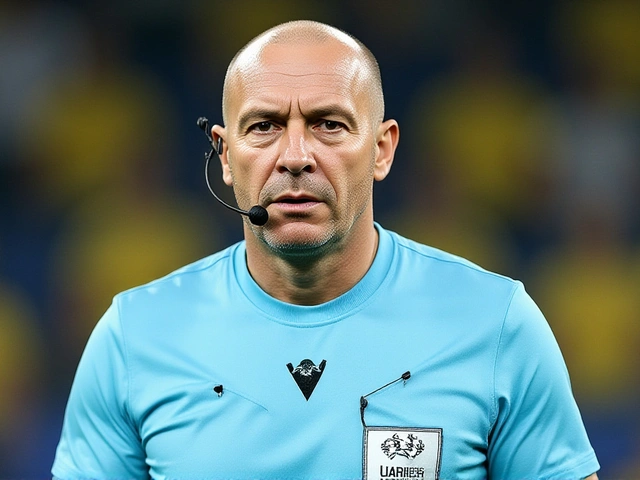
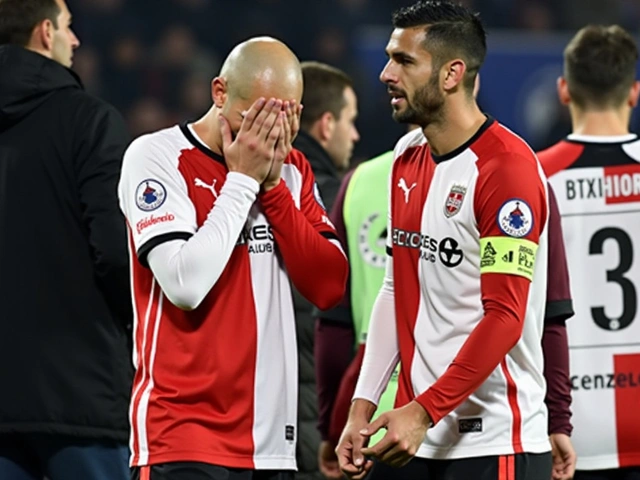
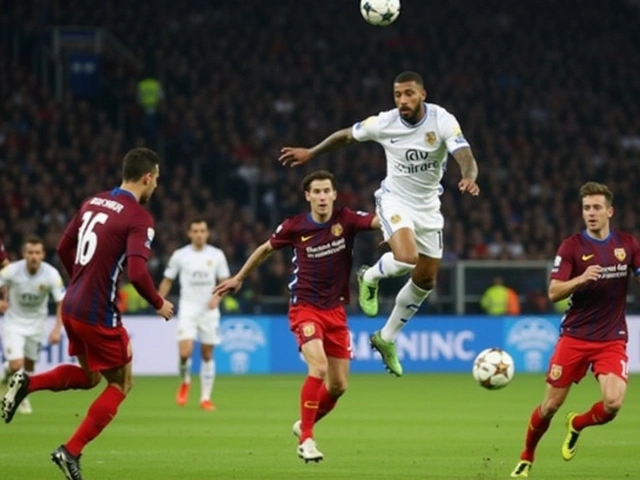


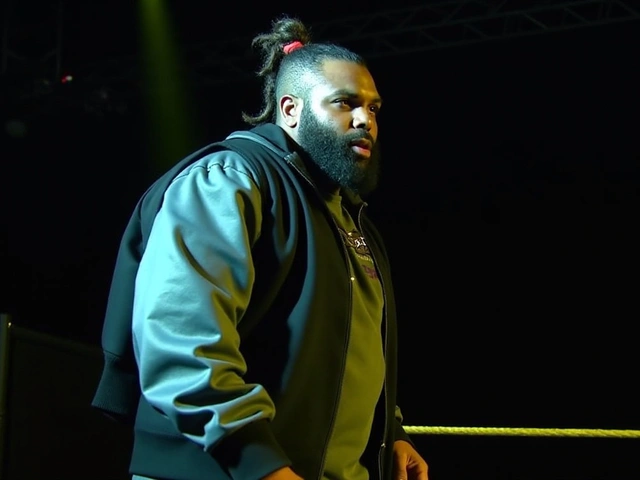


This is how football should be done. No more guesswork. Just facts, timestamps, and clear reasoning. UEFA finally gets it.
Simple, clean, and respectful. Love it.
Oh please. This is just PR spin. They’re still getting it wrong half the time. You think they’d give this much detail if they weren’t scared of backlash?
The VAR breakdowns are indeed a significant step forward, but one must not overlook the systemic issues underlying referee selection and training protocols. The fact that only 12 VAR teams are utilized across 18 matches per matchday raises logistical concerns, particularly regarding linguistic and cultural alignment.
Marciniak gets every big game because he’s Polish? Come on! This is bias. Why not give a German or English ref the Liverpool-Real Madrid game? We all know who really runs this league!
India’s got some brilliant refs in the making. We just need the system to invest in them. This transparency? It’s the blueprint. Let’s build it at home too. 🙌
The shift to a 36-team league fundamentally alters the demands placed on match officials. With no predictable groupings, referees must now adapt to unfamiliar tactical systems within a single match. This requires not only physical and technical readiness but also deep cultural and linguistic comprehension of player behavior patterns, which UEFA has begun addressing through language-specific VAR assignments. A necessary evolution.
Kovács? Again? He’s been refereeing since the Stone Age. If Real Madrid wins, he’s a genius. If they lose, he’s a fraud. Same old story.
The language alignment of VAR teams is actually brilliant. Fritz and San aren’t just tech operators-they’re cultural interpreters. That’s why reviews are faster. It’s not just tech-it’s sociology.
They’re hiding something. Why only three VAR breakdowns? What about the other 15 matches? And why did the assistant get downgraded but not the main ref? Coincidence? 🤔
It’s interesting how transparency becomes a tool for trust… but only when it’s convenient. I wonder if this level of detail would exist if fans didn’t scream loud enough.
Honestly, this is the kind of stuff that makes you proud to be a fan. No more blind rage. Just understanding. Even if you disagree, you know why. That’s progress.
Marciniak’s assignment pattern is statistically predictable. His error rate is 0.7% over 120 matches. That’s elite. No surprise he’s on the big games.
I’m glad they’re finally doing this. But I still think the assistant referee who missed the offside should’ve been suspended. One mistake shouldn’t cost a team their season.
This is a joke. Sylwestrzak got the red card right in Bodø/Glimt, but then let a handball go in the 78th minute? He’s lucky he’s not banned.
Wait… so if a ref is good, he gets more games? That’s not random. That’s favoritism. Who’s picking these refs? FIFA? The Pope? 😂
They’re letting foreign refs control Indian football’s future? What’s next? Letting Germans decide our cricket umpires? This isn’t transparency-it’s colonization.
they said var was gonna fix everything but its just more confusion. why do we even watch anymore? 🙄
I didn’t even know there was a 36-team format. I thought it was still 32. Guess I missed the memo.
THIS IS THE FUTURE OF FOOTBALL! NO MORE HIDDEN CALLS! NO MORE RUMORS! JUST PURE, CLEAN, TRANSPARENT GAME! UEFA JUST WON THE WORLD! 🚀🔥